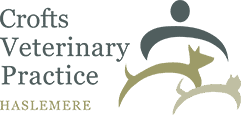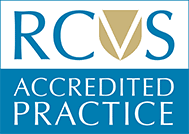Useful information for pet owners.
Check in
For non-emergency surgery, we admit your pet between 8.30 –9am. We ask you to read and sign a consent form giving us permission to operate on your pet. Your pet will be weighed, and then checked thoroughly by our experienced veterinary team prior to any procedure.
Pre-med and anaesthetic
Then we give an injectable pre-medication to settle your pet, along with both a preventative anti-biotic and anti-inflammatory injection.
Once the pre-med has taken effect we administer the anaesthetic induction agent, usually into the vein in the front leg.
Once your pet is asleep an endotracheal tube is placed down the throat to facilitate breathing – the gasses administered are pure oxygen and also an anaesthetic gas to keep your pet asleep. We use state-of-the-art monitoring equipment, and have highly trained nurses to monitor the anaesthetic whilst the vet performs the procedure.
The Operation
The surgical site is clipped and scrubbed with a surgical solution, and the surgery is then performed. Procedures can take anywhere between 15 minutes and 3 hours depending on what level of intervention is necessary — ;from simple castrations to complex orthopaedic or soft tissue operations.
Waking up and aftercare
Once the surgery is finished we will slowly and carefully allow your pet to wake up from the anaesthesia, your pet is continuously monitored until s/he is ready to be returned to their bed.
- We usually ask you to phone in at around 1-2 o'clock, to see how your pet is getting on and let you know what time s/he should be ready to pick up.
- We will keep your pet here until we are happy he has recovered fully from his anaesthetic. When you come to collect your pet he will be discharged by one of our vets and/or nurses who will go through all post-operative care and answer any questions you may have.
Post pet operation advice
If you have any worries, please call the surgery on 01428 653 056.
Food / Water
Your pet can have a light meal on the evening of surgery. Do not be concerned if s/he does not want to eat right away. You must remove food if any vomiting occurs. Normal food can be fed the following day. Offer normal amounts of water.
Rest
Keep your pet in a confined area away from other pets and children for a day. Do not place him/her in a high place (bed, sofa, etc). Rest is essential for healing.
Drowsiness
Your pet may appear drowsy; this is because of the anaesthetic and should wear off during the next 24-48 hours.
Coughing
Your pet may cough occasionally following his/her procedure. This is because a tube was placed in his/her windpipe to help him/her breath during their anaesthetic. If a cough is present it will normally resolve over a number of days.
Medication
If any medication has been prescribed, please start this the following day (unless instructed otherwise). Any anti-inflammatories (pain relief) must be given with food (unless instructed otherwise)
Check wounds
Please check the wound at least twice a day, a small amount of redness and swelling is normal. Wounds should be clean and dry and free from odours. A small amount of blood around the incision is normal immediately following surgery. Please do not attempt to clean the wound unless instructed otherwise. Do not bathe or let your pet get wet for 7 days.
Anaesthetic injection site
A clipped area may be present on one of your pet's forelegs, this is where the anaesthetic was injected. A little bruising in this area is not unusual and will recede with time. The hair will usually grow back in 4-6 weeks.
Protect sutures
It is very important that the sutures are protected from self trauma. If you cannot stop your pet from licking, we recommend an E-collar. Please call us if you have any concerns regarding the appearance of the skin wound(s). If your pet is wearing an E-collar, prepare for him/her to react negatively at first. It usually takes 24 hours to get used to the collar, but then they are usually quite accepting of it.
Dogs must be kept on a lead and discouraged from running, jumping and rough play until the sutures have been removed.
Cats must not be allowed to jump onto or down from work surfaces/window sills.
Stitches
Stitches are normally removed 10-14 days after the operation. Please organise an appointment to have the wound check and any stitches removed before leaving the clinic.
Monitor your pet
We expect your pet to urinate within 24-48 hours of going home, and to defecate within 4-5 days. If this does not happen, or you notice straining without passing of anything, please phone for advice. If your pet is repeatedly sick or becomes excessively lethargic, please contact the surgery.
Instructions prior to admission
Food and Water
To ensure a safer anaesthetic, your pet needs to be starved for 12 hours prior to surgery. This is to ensure the stomach is empty and there is no risk of regurgitation or inhalation during the anaesthetic or recovery. A small meal should be provided no later than 8pm the evening before.
Water must be provided overnight but taken away in the morning before your scheduled appointment. No milk should be given, No treats, No oral medication the morning before surgery unless instructed to by your veterinary surgeon.
Cats
Cats are best kept in overnight (with a litter tray) to prevent them going out and disappearing or catching themselves some breakfast!
Dogs
Should be walked on a lead prior to arriving at the surgery. Please do not take dogs for a lengthy walk through muddy fields before arriving at the surgery. (We like them to stay as clean and dry as possible).
Rabbits
Rabbits are exceptions and should have food and water left available until admission. Please bring a small amount of food with you.





